Is there a person in your life that can make you smile?
Are you afraid of roller coasters?
What are you doing right now?
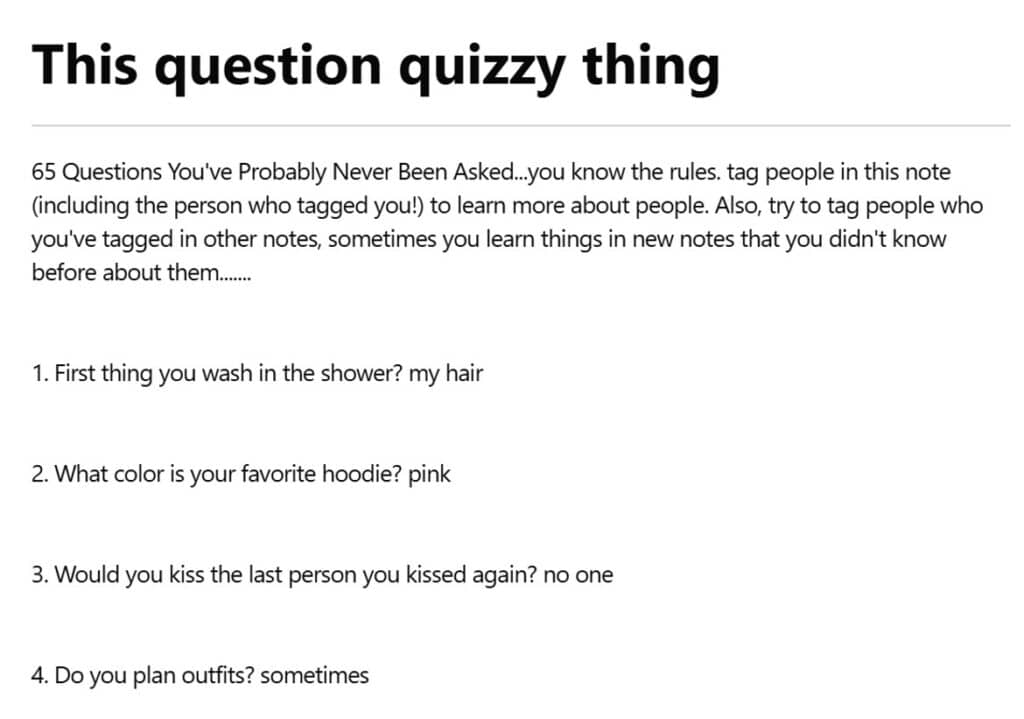
The above are excerpts from the deep annals of the 2009 era of my Facebook. Though “notes” are no longer a thing on Facebook, they were all the rage in 2009 and the place for quizzes. Alongside shared posts requesting help from friends in Farmville and meaningless status updates like “doing hw, txt it,” notes-based quizzes peppered my News Feed. These aren’t trivia quizzes or other skill-based activities, these are more like questionnaires about yourself. My friends and I would fill out these hundred question sets of queries, tag each other, and share. The next would fill it out, post, and on and on.
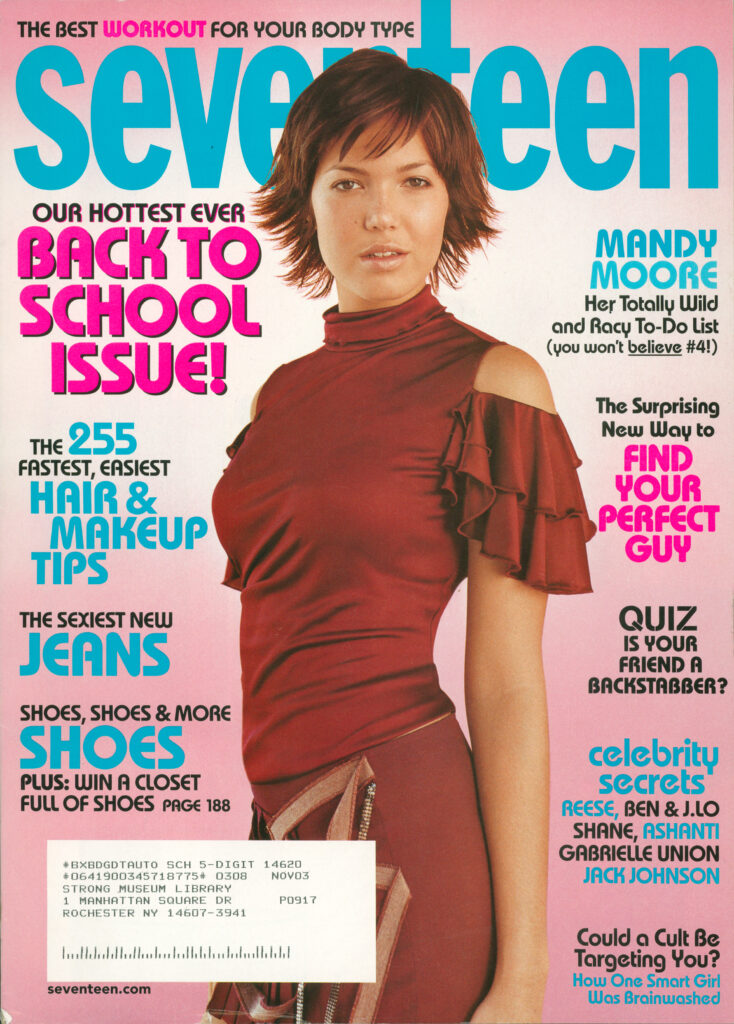
These kinds of quizzes weren’t a purely Facebook phenomenon. In fact, I would say that Facebook quizzes were only yet another iteration of a long-standing pre-teen and teen pastime. For many years, teen magazines were the home of personality quizzes that ranged from great to problematic but rarely failed to entertain. When I was a teen, I could go to the store and take my pick: J-14, Seventeen, Tiger Beat, Pop Star!, or M; they all had quizzes!
Teen magazines have a long history. Seventeen began publishing in 1944 and the predecessors of YM even earlier, with many more publications cropping up over the years. As early as Seventeen’s June 1970 issue, there are headlines on the cover like “Quiz Fun: Is he for me?” The September 1980 cover featured “QUIZ: Do you understand yourself?” By the 1990s and 2000s most teen magazine issues had some kind of quiz. Even the Generation Girl Barbies from 1998 and 1999 had teen magazines with quizzes!
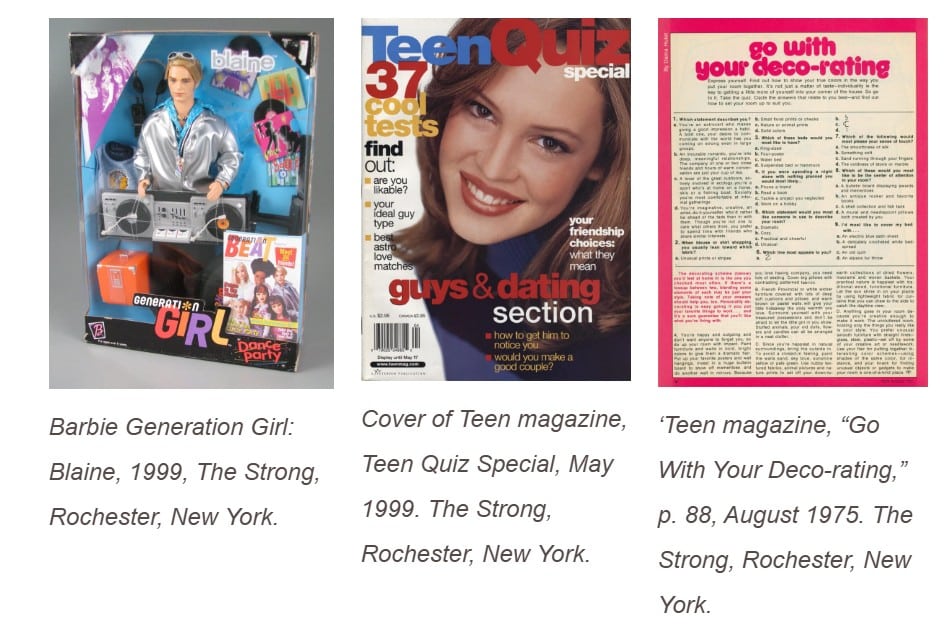
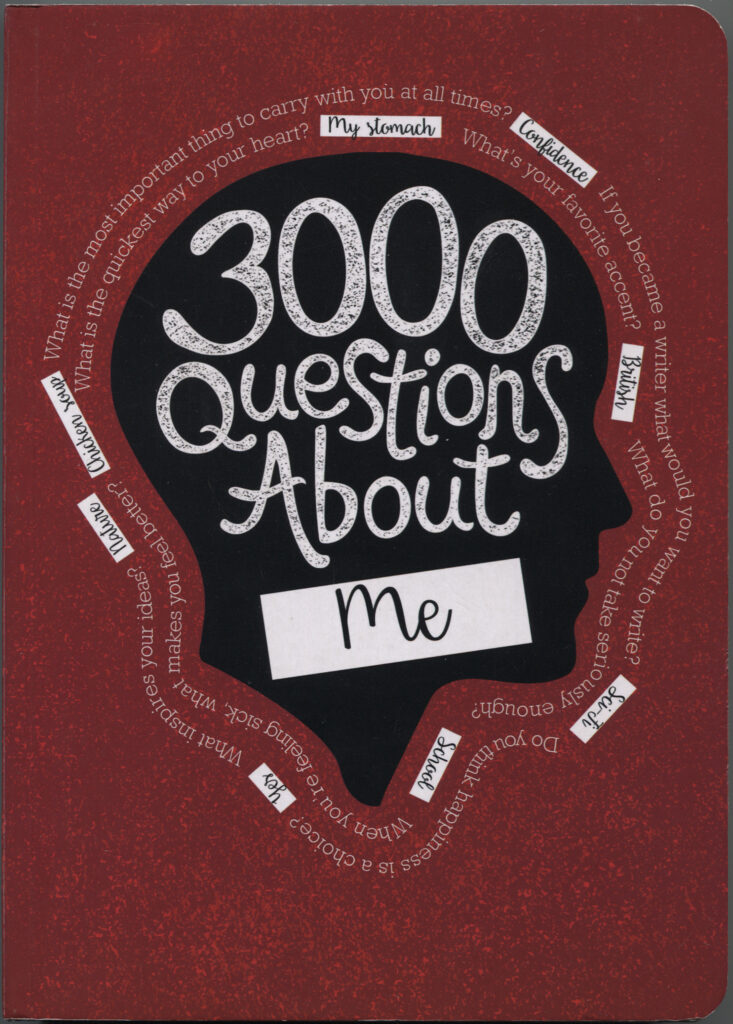
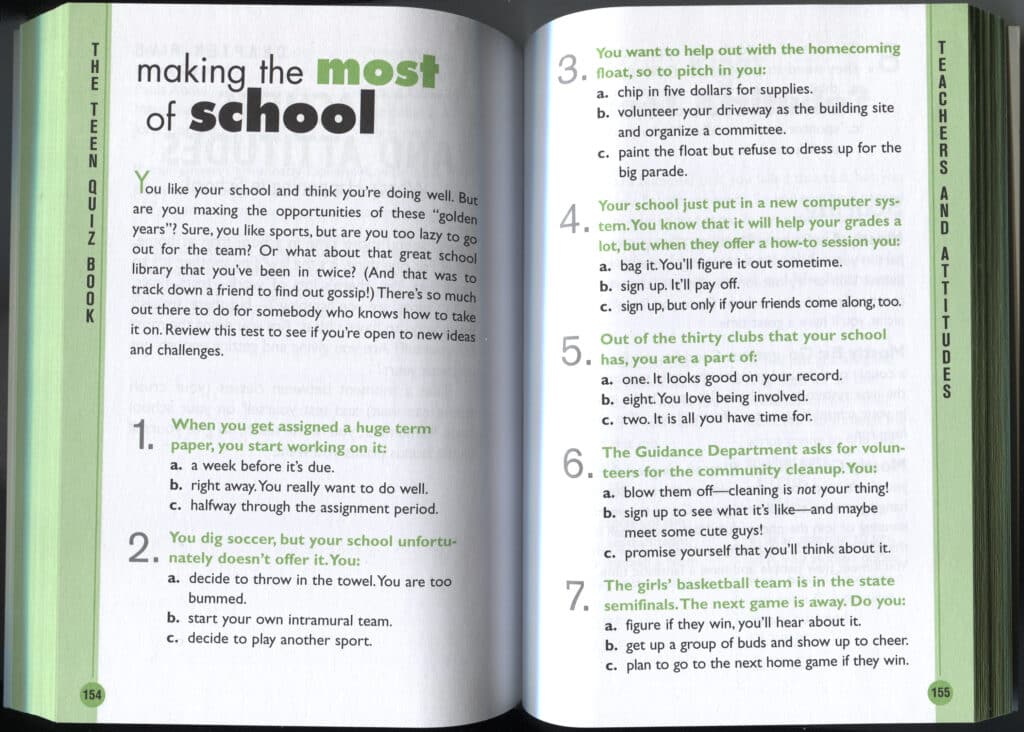
Quizzes weren’t just in magazines. If you couldn’t get enough of them, they started making books! American Girl published several including The Quiz Book with two sequels (1999, 2001, 2003) and Which ____ Are You? Quiz Book (2013). CosmoGirl! put out Quiz Book: All About You (2004), Quiz Book: Discover Your Personality (2005), and Ultimate Quiz Book: Discover the Real You! (2009). Teen Magazine had Uncover the Real You: A Quiz Book (2008). There were a couple of editions of The Teen Quiz Book (1998, 2013), and my sister had Coke or Pepsi? 3 (2009) and 3000 Questions About Me (2018).
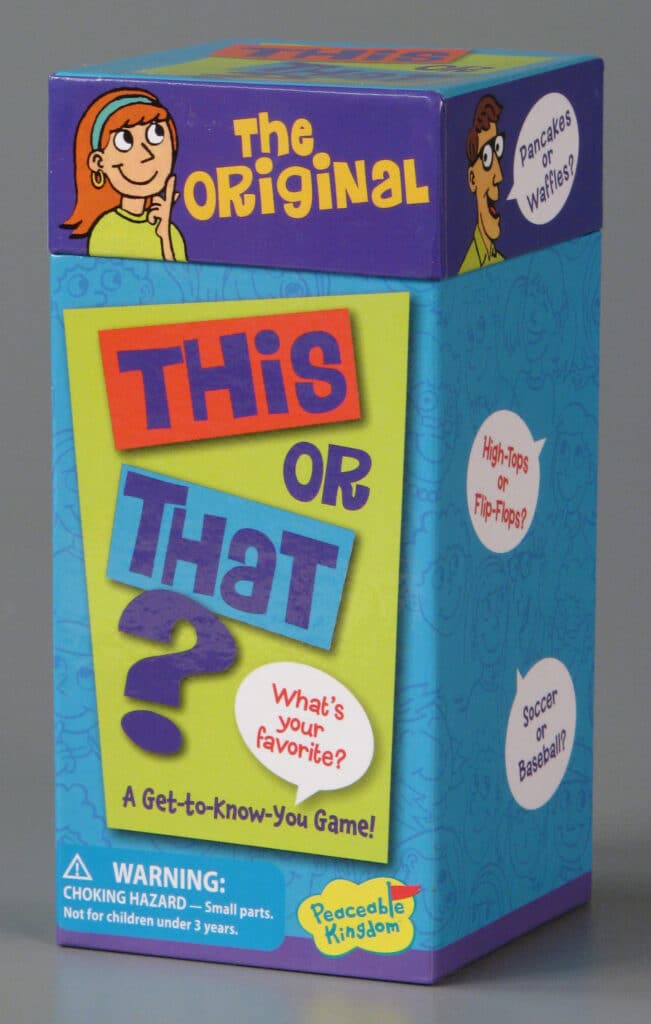
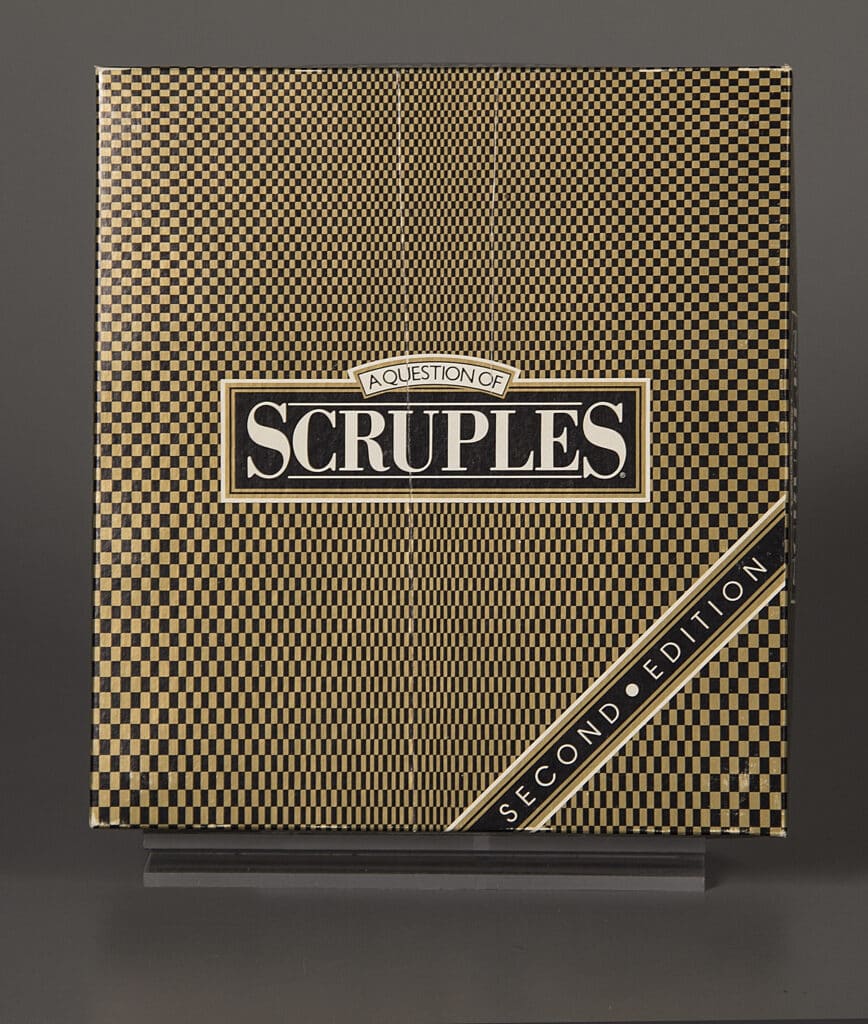
This playstyle is also reflected in many games. The This or That Game (about 2011) and Buddy Talk (2010) are examples of how those foundations—answering questions about yourself—could form a basis for gameplay. Scruples, designed in 1984, challenges players to guess each other’s answers to questions, and of course the sleepover-staple Truth or Dare and many an icebreaker activity are rooted in answering questions about yourself. There were also game shows like The Newlywed Game that were built around answering and guessing answers to questions.
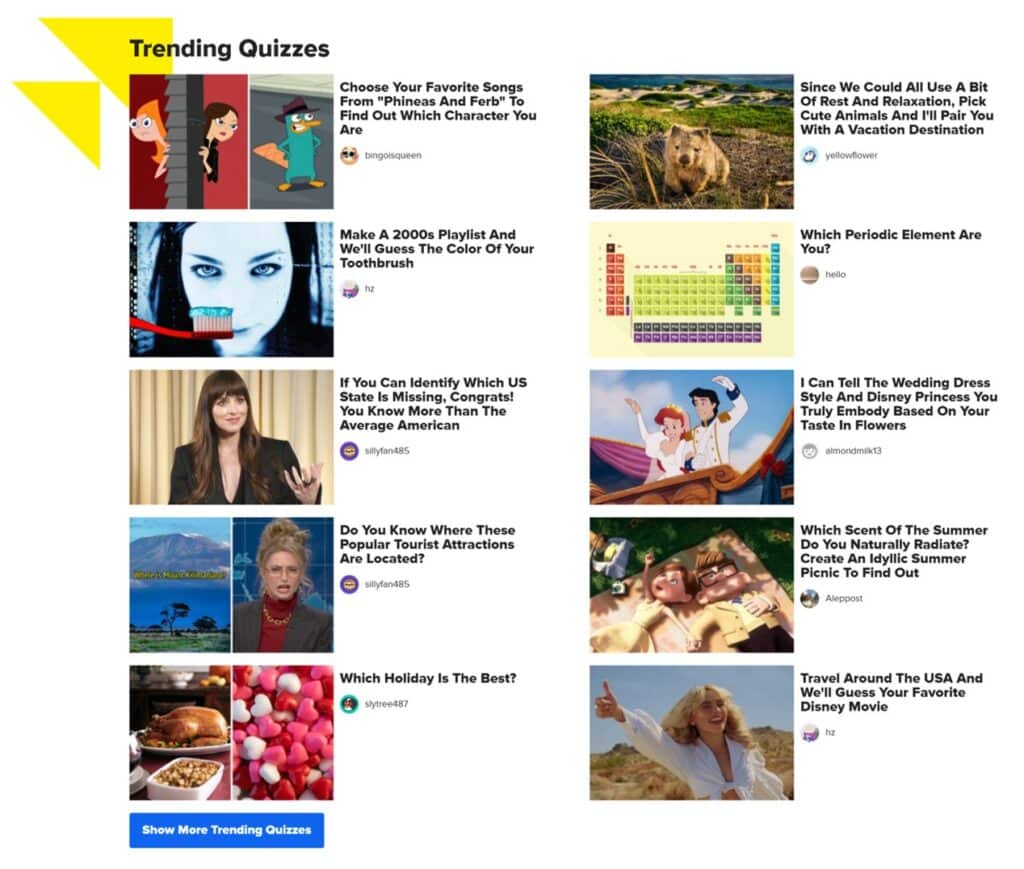
At some point as the internet and social media evolved, we graduated to BuzzFeed quizzes. Instead of sharing notes on Facebook filled with copy/paste questionnaires, we started sharing the results of these web quizzes. Though these proliferated most in the years surrounding 2013 and 2014, at the time of writing you can go to BuzzFeed and find out “what snake you are most like” (apparently I’m a hognose) or you can learn “Which Dessert Matches Your Personality Based On How You Spend Your 24 Hours?” (mine is pancakes). These quizzes were (and are) fun, flashy, often absurd, and easy to make. Designed to share on social media, they made the personality quiz game even faster and easier.
Looking back, I think part of what made these quizzes a hit with primarily pre-teen and teen girls is that they gave us permission to talk about ourselves. Girls have historically been expected to embody the ideals of humility and selflessness. Talking about yourself, especially in a positive way, has often been associated with being self-absorbed or conceited. These questionnaires and quizzes gave girls an opportunity to talk about themselves, reflect on themselves, and learn about themselves.
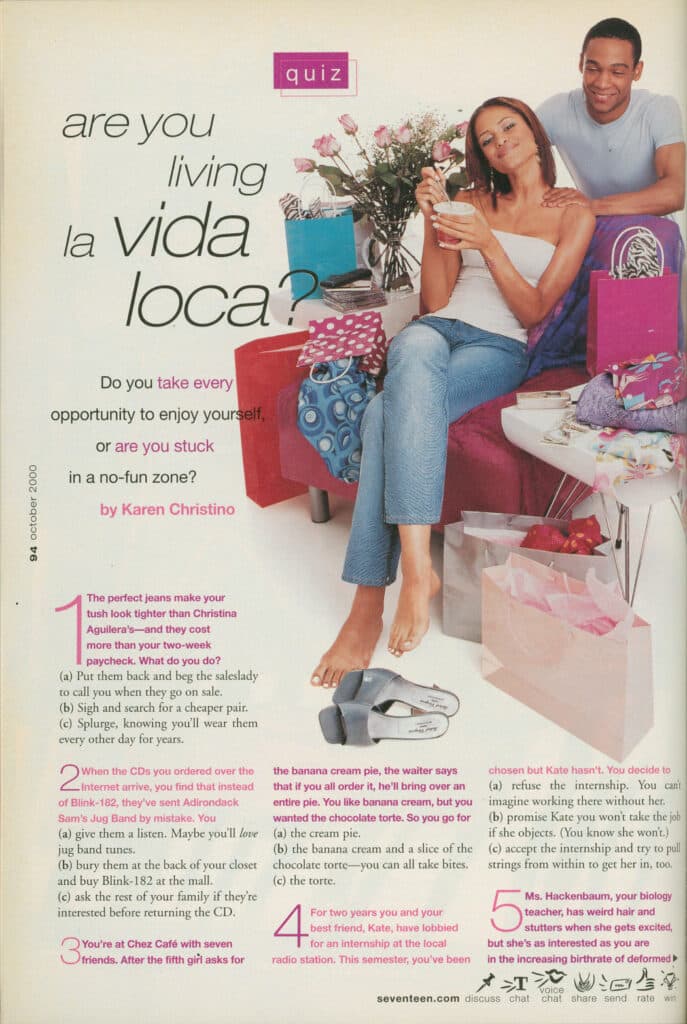
In a time of life when things can be confusing—puberty, insecurity, cliques, expectations—quizzes let us make some sense out of the murk. Whether it is by allowing us to catalog how we feel about certain things (ex. Coke or Pepsi?) or helping us build identity (ex. Ultimate Quiz Book: Discover the Real You!). I know I’m not really a hognose snake, but in an era of life when I was exploring my identity, that BuzzFeed quiz may have had me thinking about the description and its accuracy (or inaccuracy).
I also think it’s important to add here that, while I am focusing on the “why” of the popularity of these quizzes, I don’t intend to discount the potential negative effects of them or the problematic features of many of those magazines. I also don’t want to mislead by saying that there are only positive results of the unconscious or conscious role that quizzes played in identity building. If the interaction moves from being in conversation with the quiz to embodying the quiz results as infallible, then the author of the quiz holds a lot of power.
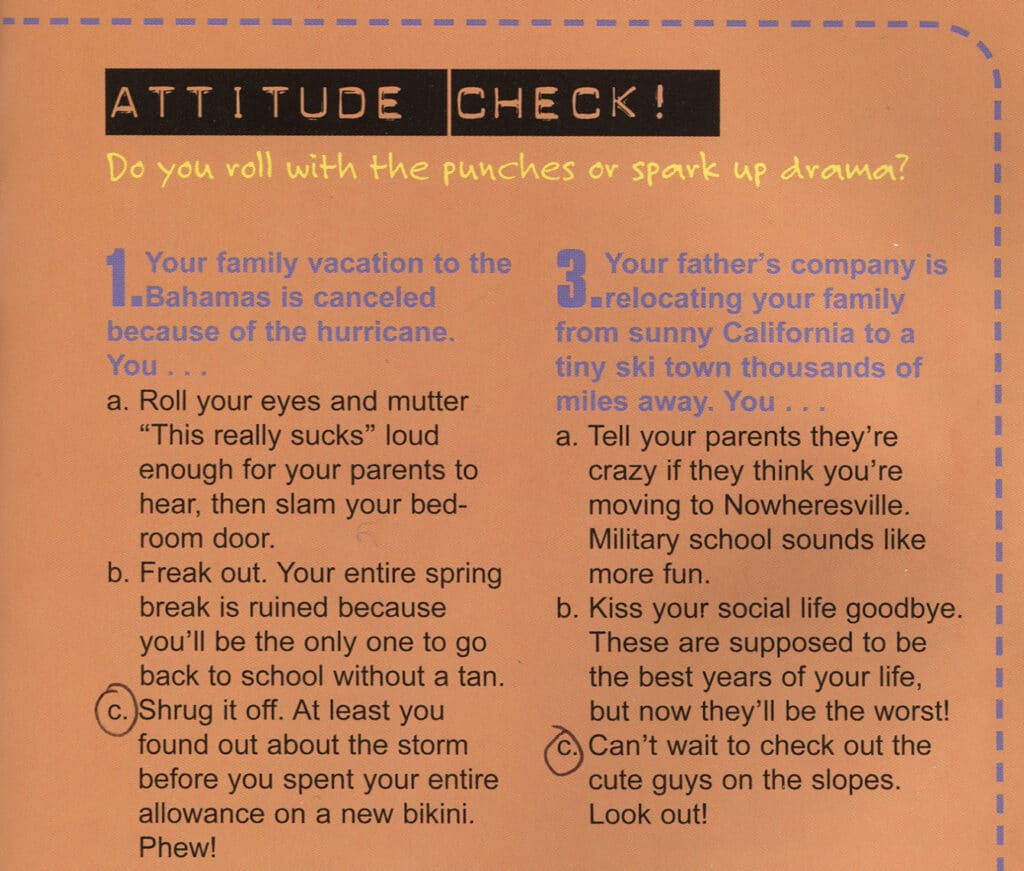
That being said, whether they’re in magazines, on social media, in books, in games, on websites, or made up by a friend, teen personality quizzes have a long history. Is it the space and permission they give teens to process who they are that makes them popular? Is it the desire to better define ourselves? Is it the fun of seeing the results or friends’ answers? I suspect it may be all of the above. One thing I can say is that this timeless playstyle is sure to appear again and again, albeit adapted to the media of the moment. And yes, I expect I’ll be there taking part once again.



